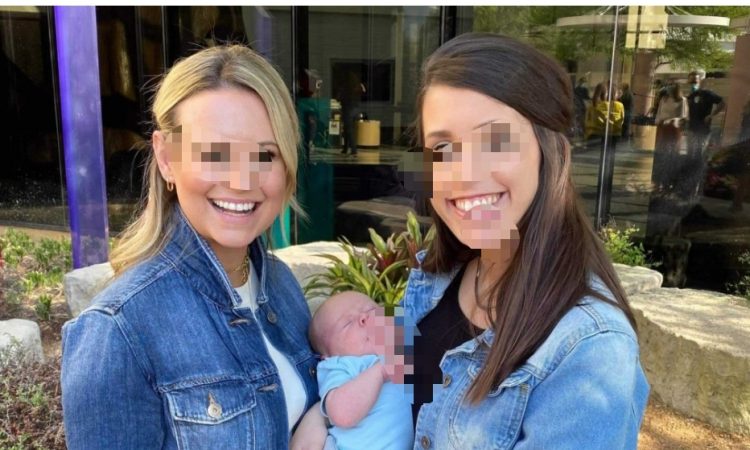A Woman with Stage Three Cervical Cancer Thought her Dream of Motherhood Was Over – Until She Found Out Something Stunning

Erica Gray thought her dreams of motherhood were over after her treatment for cervical cancer. But it was a stranger’s kindness, sacrifice, gift – however you look at it – that helped Gray become the mother she had always wanted to be.
Gray was 27 when she got the call from her doctor saying she had stage three cervical cancer. After careful consideration, Gray decided a radical hysterectomy was her best course of action. The surgery left Gray cancer-free and unable to carry a child – a wholly unfair trade-off.
But luck or fate, if you will, was on Gray’s side in the operating room when a nurse in the room began talking about another woman that had two easy pregnancies and was considering surrogacy. Gray’s oncologist, Dr. Thomas Heffernan of HCA Healthcare, connected her with Kasia Birdwell, and the rest is history.
“I thought ‘well it’s meant to be,’” Dr. Heffernan said. “And I helped get them connected.”
The two young women hit it off instantly, and moved forward with the surrogacy.
We sat there for three hours,” Birdwell told CBS. “We were hugging and they’re like ‘we’re gonna call the agency tomorrow.’”
Gray’s little boy arrived in March. Her dream of motherhood now a reality, she’s looking forward to her future with baby Richard.
“It’s so incredible,” Gray said. “I mean, I just can’t wait to watch him grow.”
Cervical cancer begins in the cells lining the cervix – the lower part of the womb (uterus). Treatment options for cervical cancer include surgery, chemotherapy and/or radiation therapy. Erica Gray had an “aggressive” treatment called a radical hysterectomy which generally removes the uterus, the tissues next to the uterus, the cervix and the upper part of the vagina which left her unable to carry children.
Other forms of cancer treatment can also affect fertility. Some types of chemotherapy, for example, can destroy the eggs in your ovaries, making it impossible or difficult to get pregnant. Whether or not chemotherapy makes you infertile depends on the type of drug and your age – since your egg supply decreases as you get older.
The risk is greater the older you are,” reproductive endocrinologist Dr. Jaime Knopman tells SurvivorNet in a previous interview. “If you’re 39 and you get chemo that’s toxic to the ovaries, it’s most likely to make you menopausal. But, if you’re 29, your ovaries may recover because they have a higher baseline supply.”
Dr. Knopman tells SurvivorNet that when women are diagnosed with cancer in their childbearing years, fertility preservation needs to be a part of the conversation with their doctors.
“Everyone in their reproductive years should be advised of their options,” Knopman says.




